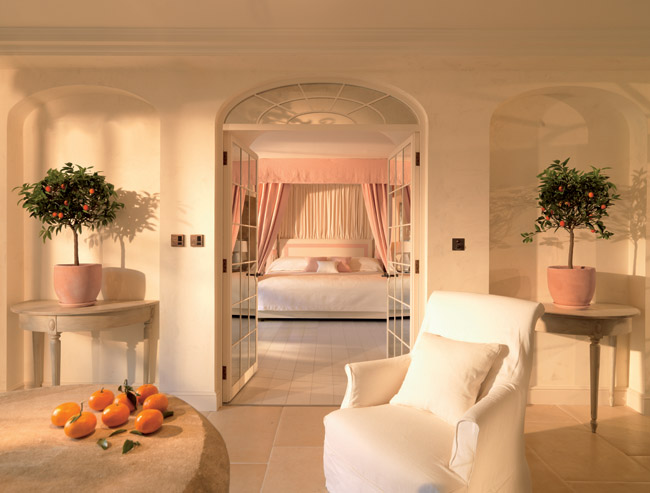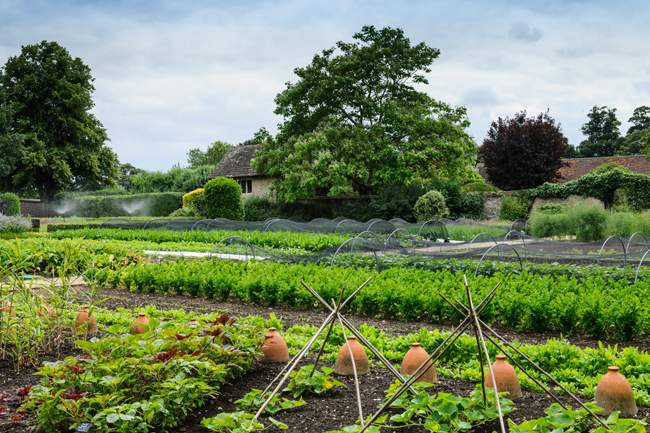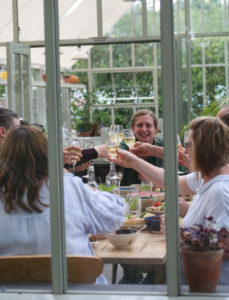Raymond's revolution: Raymond Blanc shares his manifesto on what is required to transform the future of hospitality
The hospitality industry has suffered from an image problem for years, but Raymond Blanc believes he has the answer on how to attract the next generation of workers and customers. Chris Gamm met him to find out more
How does the hospitality industry attract a generation of millennials put off by a reputation for long hours, macho kitchens and last-ditch career options?
It's a challenge restaurants and hotels up and down the UK are addressing, following a Brexit-induced slump in job applications from EU nationals.
Raymond Blanc, one of Britain's most respected chefs, believes he has a solution. It's rooted in his upbringing in eastern France and gives an insight into the formula that has earned Belmond Le Manoir aux Quat'Saisons in the Oxfordshire village of Great Milton two Michelin stars for 34 consecutive years and the title of the UK's best hotel in the 2017 Hoteliers' Hotels awards, run by The Caterer and Sky.
"The industry needs to completely reinvent itself to attract more young people," says Blanc. "We are an industry that has self-harmed for so many years. At first we were for the lowly servants of society. If you were an economic failure or had a frontal lobotomy, you automatically came into hospitality.
"Once these things happen, you create an industry without proper rules, structure or training, where young people were thrown in at the deep end. It's where we have failed."
n response, Blanc has created a blueprint for the way forward, a series of values, from creating a nurturing work environment and embracing sustainable food production to simpler and more transparent menus. All are designed around increasing the appeal of his business to modern workers and guests.
The Caterer was there to listen.
Value 1Respect for food
Stroll around the grounds of Le Manoir and you get a sense of everything being connected, an ecosystem that supports itself and an experience for which guests travel far and wide.
"I love the garden," says Blanc. "Guests spend 50% of their time there; as much as at the table. It connects good food with health, beauty, nutrition, teaching and mentoring."
e have lost the creative act of cooking as a nation, according to Blanc, fuelled by decades of intensive, mass food production. But things are changing, with a "small revolution" on the horizon.
"We know we need to reconnect with food, have less wastage, be more responsible, knowledgeable and aware," he says. "The modern consumer understands that. We are on a journey, but it's not going to be easy to make it up overnight."
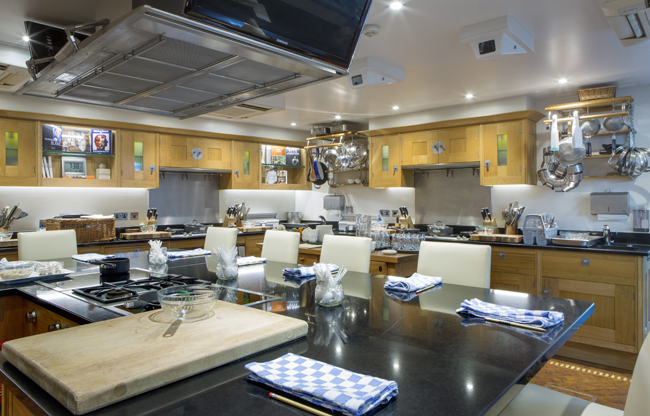

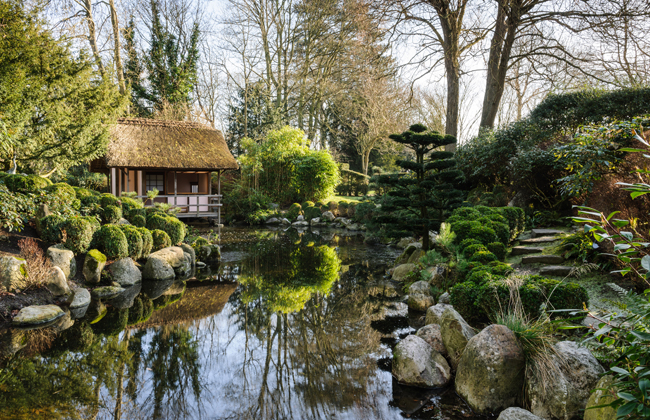
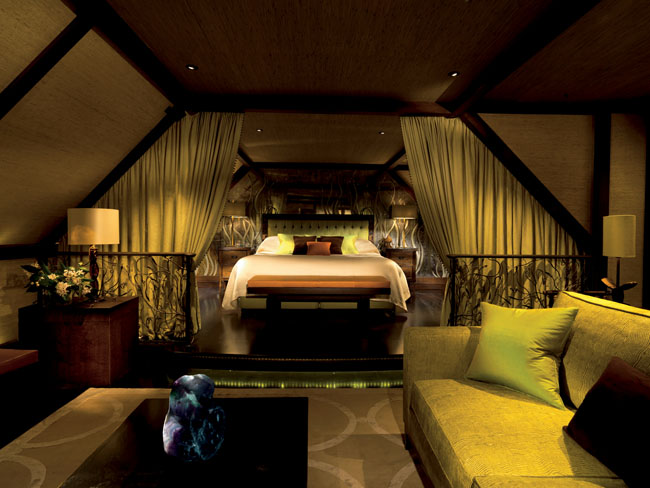
!](https://cdn.filestackcontent.com/htbnX0WJT8GWskYCK6f3)Anne Marie Owens,head gardener, on respect for food "Every year, we run produce tastings with executive chef Gary Jones, development chef Adam Johnson and two or three gardeners. There will be 12 varieties of everything and we'll taste them blind, quickly ruling things out if the flavour doesn't carry or the texture is too grainy. You know you've found something good when nobody says a word; they just groan. "Guests really enjoy learning how we work and why we do things. The gardening school deconstructs fine-dining mythology, like showing how to grow microherbs in a yogurt pot on a window sill." 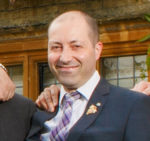Arnaud Goubet,director of wine, on caring for your people "It hit us hard recently with millennials with new values. We have to retrain ourselves to adapt and nurture them. The most important value for me is care. Take care of your people and then it's easy to take care of the guests after. That's probably the biggest change: being able to look at ourselves and say 'how can we adjust?' If we wait, we'll find there's a big gap between what the market wants and what we're providing." 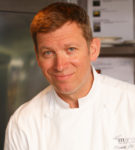Benoit Blin,chef-pÁ¢tissier, on Le Manoir values "When you leave Le Manoir, you don't just leave with a strong set of skills, but also values. \[Former Le Manoir sous chef\] Luke Selby moved on to Hide, which has a different set of values, and now he has the responsibility to challenge that for himself. "Can you create another Le Manoir anywhere else? That would be very difficult. It's an ethos, a way of life. The machine works because of all the people and values. Staff come here because they know what they're going to get in terms of development and training and their future will be affected by it. How many places can offer to one of those youngsters a game-changer?" 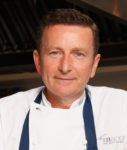Gary Jones,executive head chef, on changing the kitchen environment "It's highly pressured and we're full for lunch and dinner. You must control your environment the best you possibly can. "We're dealing with millennials and taking people at a base level and evolving their skills, so when things go wrong, you've got to be supportive and retrain, reshape and coach along the way, rather than jump all over them. "For youngsters coming into the kitchen, they're on an 8am-4pm shift, so they have the evening off to recover. We've got to make it more attractive to people in schools." 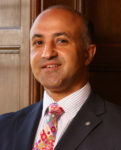Mourad Ben Tekfa,restaurant director, on reducing hours "It's a difficult balance. With craftsmanship, you have to put in the hours, repeat until you fail, then start over again. "We have a beautiful pigeon en croute on the menu, but if you want to learn how to prepare the dough, cook it properly and carve it properly at the table, it takes time. "You also have to manage your staff in a different way and take every opportunity to listen to them, give feedback, get feedback, and revisit with them how the environment should be for the benefit of everyone." Jan-Paul Kroese,general manager, on making your values work for your business 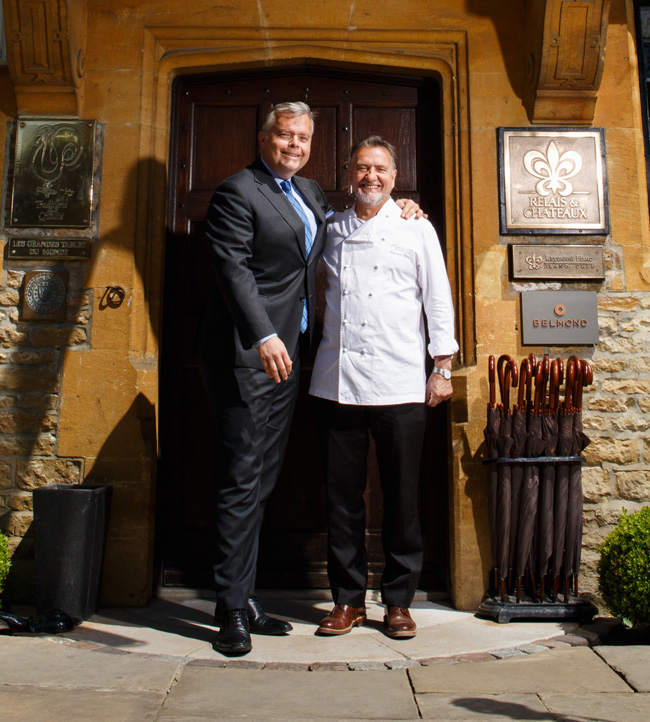 "With our values, you have to be willing to invest time and money. Moving from free-range to organic eggs costs £18,000 a year. It's all about making choices. We have a certain food cost and within that we make choices. "If the chefs want to invest in organic eggs because they're the better option, because of taste and environmental impact, I think that's a wonderful choice. It will mean they'll probably have to make a choice somewhere else in the budget. We're not free-for-all. "The kitchen garden saves us 2-4% on food cost in the summer, so that means we can spend on things like organic eggs. "First, you need to make sure you understand the long-term value of something. I've been lucky to be from a generation that's embraced those values easily. It's always going to be an option to look at the greener alternative, and that also makes our guests and my team feel great about making that choice. Those are the kind of things that for me are very important. "When I saw Raymond and learned about the opportunity here, I fell in love. What he's doing is amazing. I learn a lot and am able to help with the things he isn't able to do. Sometimes it's good to have an external point of view."
What's next for Le Manoir? Raymond Blanc on……creating a farm and vineyard "The farm will be seven times bigger than the current garden, which we'll convert into an art garden. It will supply more than just this place. We'll sell our vegetables in a beautiful farm shop. My juices, cider, all the extra vegetables - fantastic. The vineyard has taken two years to prepare and I've got top professionals and the world's best nursery man working with me." …three Michelin stars "I never wanted them. I made that choice a long time ago. I didn't want to take the risk when growing the place. Previously a restaurant with 10 rooms, servicing them at a high level of service and luxury, there was not enough revenue. We would have got three stars, but I decided not to take the risk." …retiring "It's not for me to decide. Belmond is keen to have me here for very obvious reasons. I know the figures I give, and I've established the virtues of this place - authenticity, truth, care of young people. Through all my other activities, like Jardin Blanc at Chelsea Flower Show, where there will be 6,500 people - they're all our guests here. When I do a TV programme, I'm a feeder." [Get The Caterer every week on your smartphone, tablet, or even in good old-fashioned hard copy (or all three!).
Continue reading
You need to be a premium member to view this. Subscribe from just 99p per week.
Already subscribed? Log In



